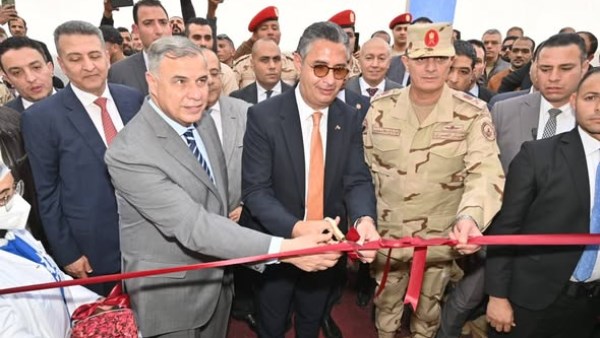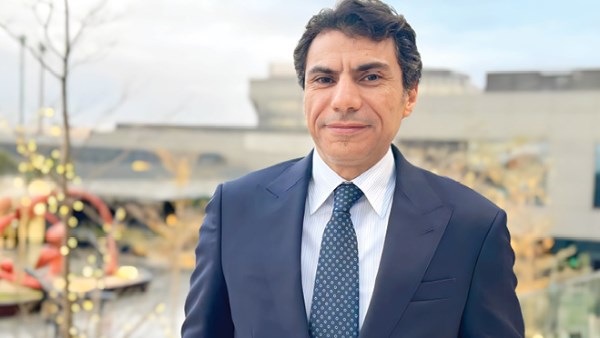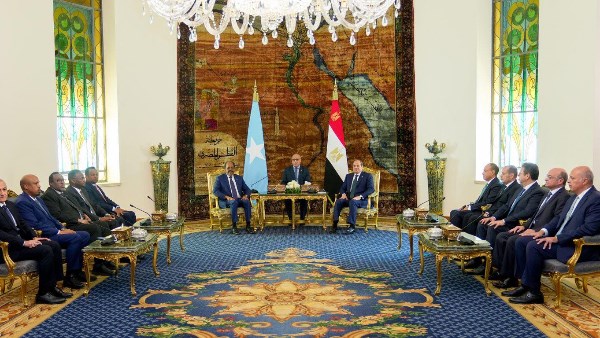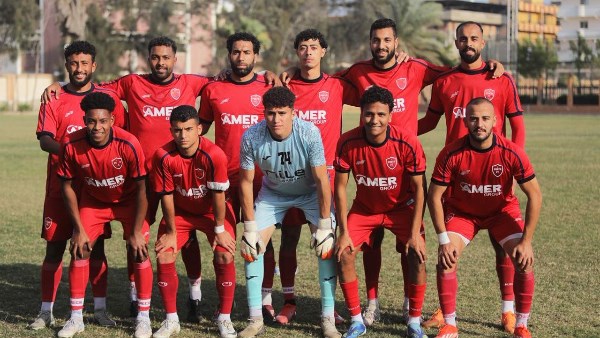
Egyptian PM Mostafa Madbouli: Government offers facilities to attract more foreign investments

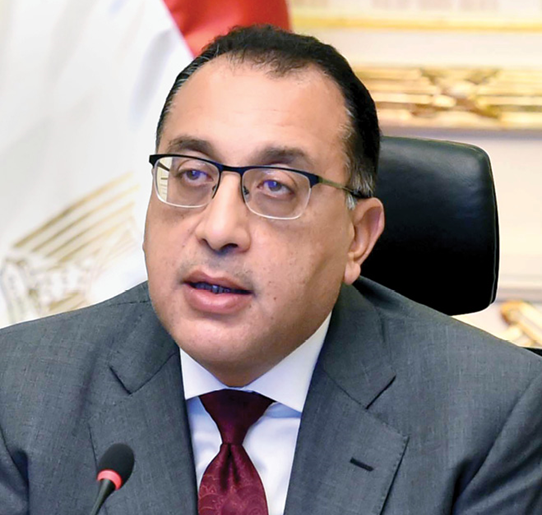
The Egyptian government has taken multiple measures during the past years to create an attractive climate for investments, as well as to lure domestic and foreign capital.
It has made efforts related to infrastructure projects, 4G cities and urban development. The government has also passed numerous laws and regulations to attract investments.
President Abdel Fattah El Sisi directed promoting role of private sector
Egyptian Prime Minister Dr.Mostafa Madbouli said the government continues to seek to attract more foreign investments to carry out various projects in all sectors, adding that President Abdel Fattah El Sisi has always directed strengthening the role of the private sector as a key partner in achieving development.
“We as a government are making every possible effort to work on overcoming any obstacles that may prevent this from being achieved,” he added.
EGP 6.2 trillion spent in 7 years to implement tens of thousands of projects
Mostafa Madbouli said the Egyptian State has spent EGP 6.2 trillion over the past seven years to implement tens of thousands of projects throughout Egypt and make up for delays in implementing those projects in previous years.
The projects being implemented in Egypt despite global challenges are recognized by the world as a “great miracle”, he added.
Population growth and needs
Egypt needs 40000 classrooms annually to accommodate increase in number of students
The prime minister said annual population growth in Egypt demonstrates the need for more housing units and services, such as education, health, etc.
«If we talk about the education sector, for example, we find that in Egypt there is an annual increase of 1.5 million students enrolled in schools. They need schools with classrooms that accommodate between 30 and 40 students each, which means that we need 40000 new classrooms to cope with the population growth,» Madbouli said.
«The cost of building a classroom is half a million Egyptian pounds, which means we need EGP 20 billion to build classrooms every year, «he added.
He also pointed out to the cost of appointing teachers, technicians and workers at those schools, in addition to high operating and maintenance costs.
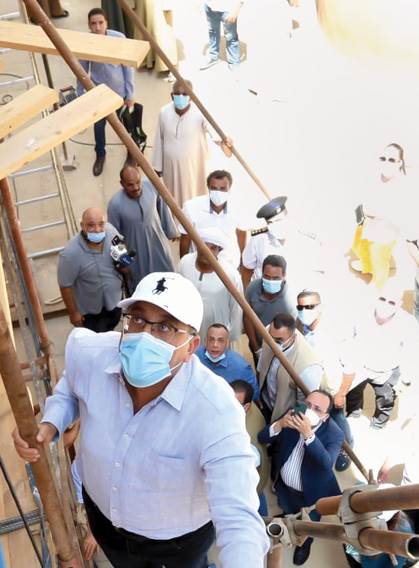
Supportive Measures
Investment Law No. 72 of 2017 included various incentives, addressed many negatives
The Egyptian government issued a new investment law (Law No. 72 of 2017) including several incentives for investors. It addressed many negatives that prevented the flow of investments in previous years.
According to the latest amendment promulgated in July 2019, the Investment Law authorizes the Cabinet to grant additional incentives for the projects stipulated in the law, such as allowing the establishment of special customs points for exports and imports of the investment projects; in agreement with the finance minister.
Half the price of land allocated to industrial projects refunded in case production starts within two years
The State bears the cost of what was often incurred by investors to connect utilities to the property designated for the project after operation. It shall also bear part of the costs of technical training for workers. The government also refunds half the price of the land allocated to industrial projects in the event of starting production within two years from receiving the land.
Free allocation of land for a few strategic activities may apply.
Investment projects carried out after the Investment Law goes into effect will enjoy a deduction from their net profits that are subject to the income tax.
A 50-percent deduction of the investment costs at the regions most in need of development and a 30-percent deduction elsewhere in Egypt.
Regulations introduced to grant residency, citizenship in event of purchasing residential properties
In addition to legislation, the prime minister said, deterrent measures have been taken to combat corruption, remove bureaucratic obstacles, and facilitate procedures associated with registering new companies wishing to work on the Egyptian market as soon as possible.
He added that those companies are granted tax and investment privileges according to the sectors and regions in which they invest, in a way that contributes to achieving the development goals set by the State.
He pointed out to revitalizing the mechanism for resolving existing disputes with some companies operating in Egypt.
Madbouli asserted that those measures have had a practical effect on removing difficult obstacles to economic growth, and attracting foreign investments.
Structural Reforms
Deterrent measures taken to combat corruption, eradicate bureaucracy
The prime minister said the government is working seriously on improving its ranking in the Doing Business report issued by the World Bank and the International Finance Corporation.
He added that there are some proposed measures being studied to be implemented during the next stage in order to bring about the required change.
This goes in line with the structural reform plans developed by the government, and is meant to continue the success it has achieved in this regard, he noted.
Madbouli also pointed out to the magnitude of economic challenges the country had faced in previous periods, which he said required the government to launch a strong economic reform program that included working to upgrade the infrastructure necessary for the development process.
This can be achieved through investing in infrastructure projects, setting up industrial zones, building new cities, in addition to other national projects with an economic and social impact, he added.
When the State intervened during the past period and targeted increasing public investments, the aim was to compensate for the decline in pumping new investments by the private sector, he noted.
Exporting real estate
Mostafa Madbouli said the government has prepared a draft law granting residency to foreigners in exchange for buying real estate in dollars, emphasizing the State’s keenness to export the contracting and real estate industry, and solve any relevant problems facing companies.
In mid-2018, the interior minister issued a decision to grant five-year renewable residency to foreigners who own a residential property in Egypt worth at least $400000 and three-year renewable residency to those owning a $200000 residential property in the country.
A decision has also been issued to grant citizenship to foreigners in case of purchasing a residential property worth at least $500000.
Government’s IPOs
Offering as many state-owned companies as possible on EGX to enhance foreign investors’ confidence in investment climate in Egypt
The Egyptian government aims to offer shares of a number of state-owned companies on the Egyptian Stock Exchange (EGX) in 2022.
In this regard, the Egyptian prime minister said the government targets offering the shares of as many state-owned companies as possible in the current year in light of Egypt’s plan to work on attracting more foreign investments, and enhancing the confidence of foreign investors in the investment climate in Egypt.
He added that he will follow up periodically on achieving the goals set by the government’s initial public offerings (IPOs) on the EGX, noting that he realizes the importance of increasing public company offerings in order to promote the role of the stock market, boost and revitalize capital flows and trading on the EGX, as well as to raise the market capital with a view to making the EGX more attractive for investors.
The companies to be offered on the EGX are promising and will attract a large segment of investors, similar to the success achieved by the initial offering of payments firm e-finance for Digital and Financial Investments, he said.
Sustainability and clean energy
State keen to lure lots of investments into Suez Canal Economic Zone, especially clean energy projects
The prime minister affirmed the keenness of the Egyptian State, under the leadership of President Abdel Fattah El Sisi, to attract a lot of investments into the Suez Canal Economic Zone, especially clean energy projects.
New incentives offered, including allowing establishment of customs points. State bears cost of utilities, part of costs of technical training for workers
This requires intensifying efforts to maximize the benefit from the Suez Canal Corridor’s strategic location in order for it to become an international economic and logistical hub, especially for green hydrogen projects, he added.
The Suez Canal Economic Zone (SCZone) has an impressive location on both sides of the most important waterway in the world: the Suez Canal, which provides unprecedented opportunities to raise the competitiveness of the canal and transform it into a global hub for ships’ green fuel bunkering; especially since the SCZone has received a number of international bids to carry out green hydrogen projects there.
Egypt is one of the top 10 investment destinations in Africa, along with Nigeria, South Africa, Algeria, Morocco, Kenya, Ethiopia, Ghana, Angola and Côte d’Ivoire.
The Egyptian economy’s growth rate rose 9.8 percent in the first quarter of the 2021/2022 fiscal year.
Despite the negative economic impact of the coronavirus pandemic, Egypt’s gross domestic product (GDP) grew in 2021 thanks to the country’s diversified economy that depends on fuel exports, agricultural exports, and tourism.
Regulations on granting residency and citizenship in exchange for buying residential properties Three-year renewable residency granted in case of buying $200000 residential property
Five-year renewable residency offered in case of buying $400000 residential property
Egyptian citizenship granted in case of buying residential property worth at least $500000
Investment incentives in Egypt
Up to 50% deduction from net profits subject to income tax
Companies’ memorandums of incorporation (MOIs) are exempted from taxes and fees of notarization for five years from the date of registration in the commercial registry, in addition to fees of registration contracts of the lands required for a company’s establishment.
Investment projects enjoy a 50-percent deduction from their net profits that are subject to the income tax.
The State guarantees equitable and non-discriminatory treatment for both foreign and national investors.
Non-Egyptian investors are granted residency throughout the project’s lifetime.
The State is committed to respecting and enforcing the contracts it concludes.
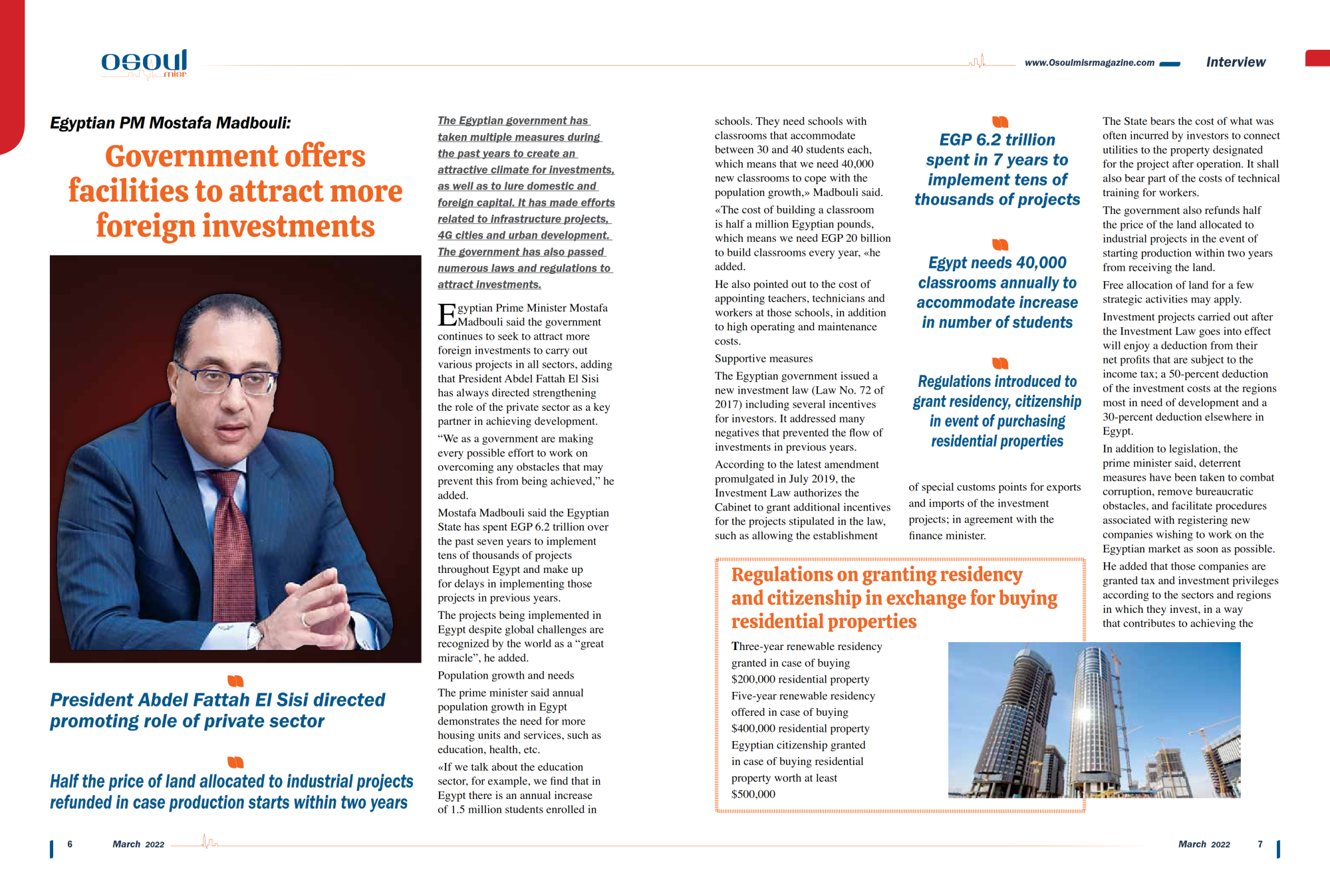
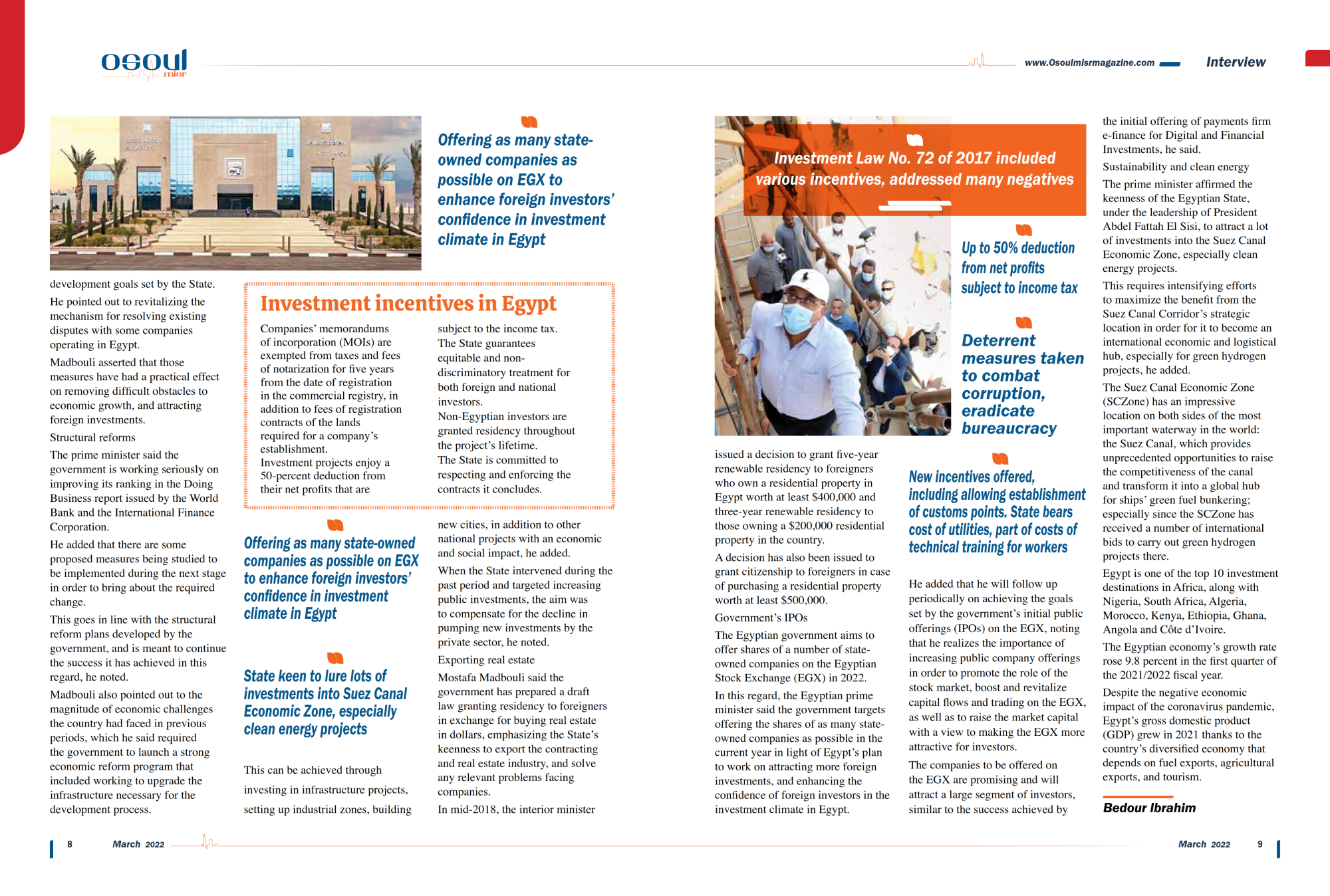





-1120252475029447.jpg)



